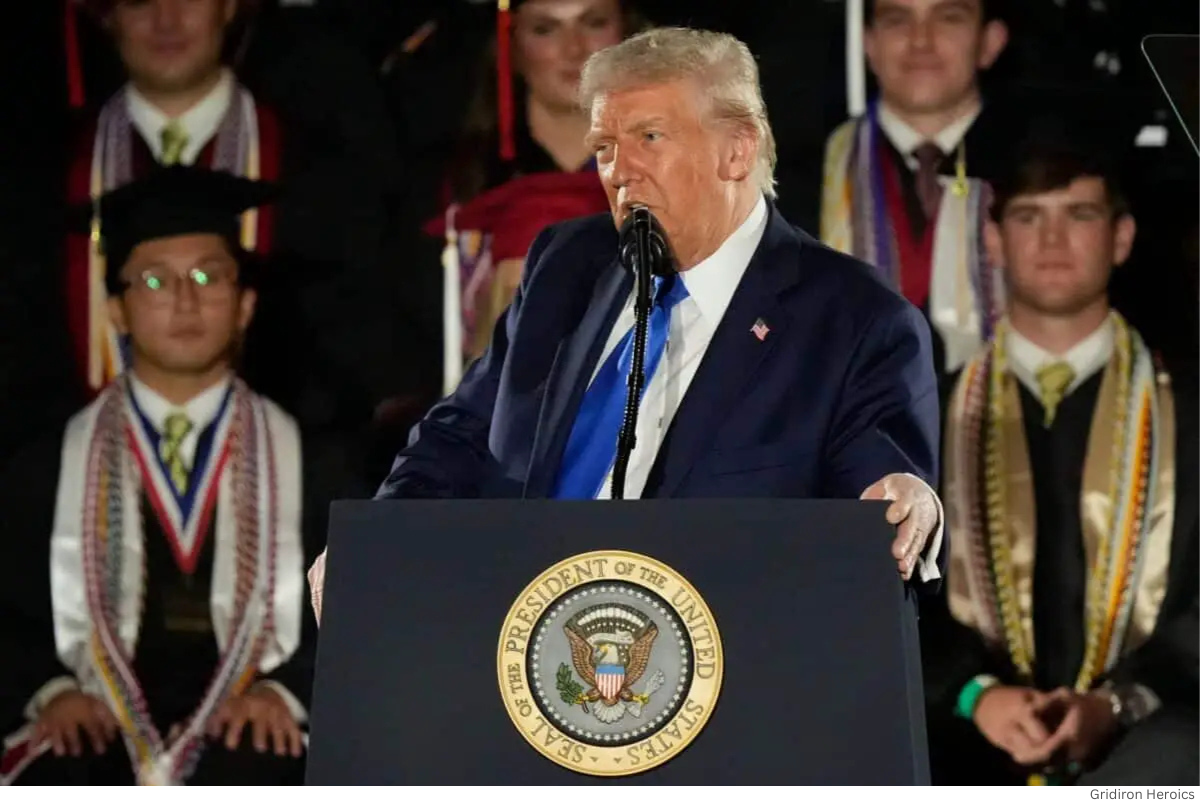The National Football League and President Donald Trump are once again at odds — this time over music, culture, and the Super Bowl stage. The league’s decision to feature global superstar Bad Bunny as the headliner for Super Bowl LX’s Halftime Show has sparked controversy reaching far beyond the sports world.
While the announcement has thrilled millions of fans who see Bad Bunny as a symbol of Latino pride and global musical influence, Trump’s criticism of the choice has reignited political and cultural debates about entertainment, patriotism, and representation on America’s biggest stage.
The NFL Picks Bad Bunny
In September, the NFL officially confirmed that Benito Antonio Martínez Ocasio, known professionally as Bad Bunny, will perform during the Super Bowl 60 Halftime Show, set for February 2026 at Levi’s Stadium in Santa Clara, California.
The 31-year-old Puerto Rican artist will become the first Latin American male to headline the Super Bowl halftime stage — a historic milestone that reflects both his global popularity and the NFL’s continued push for diversity in entertainment.
Bad Bunny, a three-time Grammy winner, currently averages over 80 million monthly listeners on Spotify and ranks among the top five streamed artists in the world. His music — a fusion of reggaeton, trap, and pop — is performed primarily in Spanish, bringing Latin rhythm and language to an international audience.
For the NFL, the choice seemed obvious: Bad Bunny represents the modern face of global entertainment. But for Trump and some of his supporters, it was an unwelcome decision that has quickly turned into a political flashpoint.
Trump’s Reaction: “Absolutely Ridiculous”
During an interview on Newsmax with host Greg Kelly, President Trump blasted the NFL’s choice, calling it “crazy” and “absolutely ridiculous.” He claimed he had “never even heard of the guy” and accused the league of trying to “make a statement instead of putting on a great show.”
Trump’s criticism came only months after he became the first sitting U.S. president to attend a Super Bowl, when he appeared at Super Bowl LIX in New Orleans between the Philadelphia Eagles and the Kansas City Chiefs. His close proximity to the NFL — including public conversations with Commissioner Roger Goodell — has fueled speculation that he still holds significant behind-the-scenes influence within the league.
However, this time, the NFL was firm in its stance: Bad Bunny will perform as planned.
NFL’s Response: “It’s Carefully Thought Through”
Speaking to ESPN, Commissioner Goodell defended the decision, describing the selection process as deliberate and diverse.
“It’s carefully thought through,” Goodell said. “I’m not sure we’ve ever selected an artist where we didn’t have some blowback or criticism. It’s pretty hard to do when you have literally hundreds of millions of people watching.”
Goodell emphasized that the halftime show’s goal is to reflect cultural breadth, energy, and unity — not politics. “We’re confident it’s going to be a great show,” he added. “Bad Bunny understands the platform he’s on, and I think it’s going to be an exciting and uniting moment.”
The league, alongside Apple Music (the official sponsor) and Roc Nation, the entertainment firm founded by Jay-Z, has stood by its selection despite growing petitions and online backlash. A petition calling for country legend George Strait to replace Bad Bunny has reportedly gathered over 50,000 signatures — but no changes are expected.
The Broader Political Undertone
Bad Bunny’s inclusion in the Super Bowl lineup has stirred more than just musical debate. The artist has been outspoken in his criticism of Trump’s immigration policies and broader treatment of Puerto Rican issues during his presidency.
In past interviews, Bad Bunny said he deliberately avoided scheduling U.S. mainland concerts at one point, fearing potential ICE raids targeting Latino audiences. His activism — from hurricane relief work to LGBTQ+ advocacy — has made him a cultural icon but also a lightning rod in conservative circles.
Trump’s opposition to his performance, therefore, has become about more than just musical taste. To many of his supporters, it reflects disapproval of what they see as “woke” entertainment infiltrating American traditions. To others, it’s another example of Trump inserting himself into pop culture debates to galvanize his political base.
Cultural Symbolism and Latin Representation
Bad Bunny’s upcoming performance represents a watershed moment for Latin music and for representation at one of the world’s most-watched events. Previous halftime performers like Shakira and Jennifer Lopez in 2020 paved the way for greater inclusion of Hispanic artists, but Bunny’s solo headlining role is historic.
His team has promised a visually bold and culturally rich show, with elements celebrating Latin heritage, Puerto Rican identity, and global unity. A source close to Apple Music said the halftime show aims to “blend rhythm, storytelling, and cultural authenticity on the biggest possible stage.”
For many fans, that vision stands in sharp contrast to Trump’s criticism. Social media has exploded with responses from both sides — some accusing the NFL of “politicizing entertainment,” and others praising it for embracing diversity.
“Bad Bunny’s music connects people across borders,” tweeted one fan. “That’s what the Super Bowl is supposed to do — bring everyone together, not divide them.”
Trump, the NFL, and a Longstanding Tension
Trump’s history with the NFL runs deep. Decades ago, he owned the New Jersey Generals in the short-lived USFL, and later became one of the NFL’s most vocal critics. During his presidency, he frequently clashed with the league over player protests during the national anthem, calling for athletes who knelt to be “fired.”
Now, as Trump seeks to shape American culture from the Oval Office once again, his comments about Bad Bunny fit a familiar pattern — inserting himself into sports debates that touch on national identity, patriotism, and race.
For its part, the NFL appears unfazed. Despite the noise, Goodell and Roc Nation are moving full steam ahead with preparations for the halftime event, which they say will be one of the most visually ambitious in the show’s history.
Bad Bunny’s Response: Humor and Focus
The artist himself has kept his response characteristically cool. During a recent Saturday Night Live appearance, Bad Bunny joked with fans, saying they had “four months to learn Spanish” before the big day — a wink at his decision to perform largely in his native language.
He has also emphasized that his goal is not political but artistic. “It’s about music, energy, and joy,” he said in an interview earlier this year. “The Super Bowl is something every performer dreams of. I just want to make people happy.”
The Stage Is Set
As Super Bowl LX approaches, the clash between Trump and the NFL highlights the complex intersection of entertainment, politics, and identity in modern America. For the league, choosing Bad Bunny is a statement about inclusivity and global influence. For Trump, it’s a sign of how far cultural institutions have moved away from his vision of traditional Americana.
Either way, when Bad Bunny takes the stage in February, the world will be watching — not just for the music, but for what it represents.
%20(4).png)









